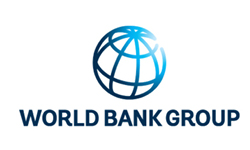Publications
Filter by
325 results found

This Public-Private Partnership (PPP) Handbook is designed for the staff of the Asian Development Bank (ADB) and its developing member countries' clients.



The report identifies and explores six critical success factors that governments should be aware of and seriously consider when preparing an infrastructure project to be delivered as a Public-Private Partnership.






This toolkit outlines a spectrum of tools that can help the countries navigate the evolving architecture of climate finance and seize opportunities for accessing finance for adaptation.



By delivering efficient, cost-effective and innovative maintenance services, well-designed output and performance-based road maintenance contracts can help maintain road assets and achieve value-for-money.






Thanks to the Internet of Things (IoT), physical assets are turning into participants in real-time global digital markets.


The OECD Recommendation on Public Integrity provides policy makers with a vision for a public integrity strategy.


The purpose of the present publication, “Towards better infrastructure products: a survey of investor’s perceptions and expectations of infrastructure investment”, is to conduct the first in-depth study of the perceived role by infrastructure assets for investors.



The Reference Guide attempts to provide the most relevant examples, references and resources to help readers inform themselves on key PPP topics.


This report evaluates recent developments regarding public-private partnerships (PPPs) in Latin America.

BCG has identified a series of best practices that underlie successful PPPs.

This second report of the Business Working Group, \"Managing transnational infrastructure programmes in Africa - Challenges and best practices\", identifies the key hurdles that have to be overcome.


This PPP checklist is an extension of the initial framework.



The Framework provides systematic structure for proactively disclosing information pertaining to PPP Projects.



This report addresses the critical question: how can the public and private sectors build successful partnerships?



A G20 report prepared by the Global Infrastructure Hub reviewing the extent to which Multilateral Development Banks (MDBs) create incentives within their organisations to crowd-in private finance to fund public infrastructure.


This book discusses in detail the issues and challenges associated with infrastructure connectivity in Asia.

This policy brief outlines promising ideas to attract instiutional investors to pay for infrastructure they have not convinced pension funds or affluent individuals to invest, especially in emerging economies with untested issuers, The “tax-kicker” bond being proposed here could solve this issue.


This document is the fifth edition of an informational tool and benchmarking index that assesses the capacity of countries in Latin America and the Caribbean to carry out sustainable public-private partnerships (PPPs) in infrastructure.



 Read PPP Handbook (Version 2)
Read PPP Handbook (Version 2)

